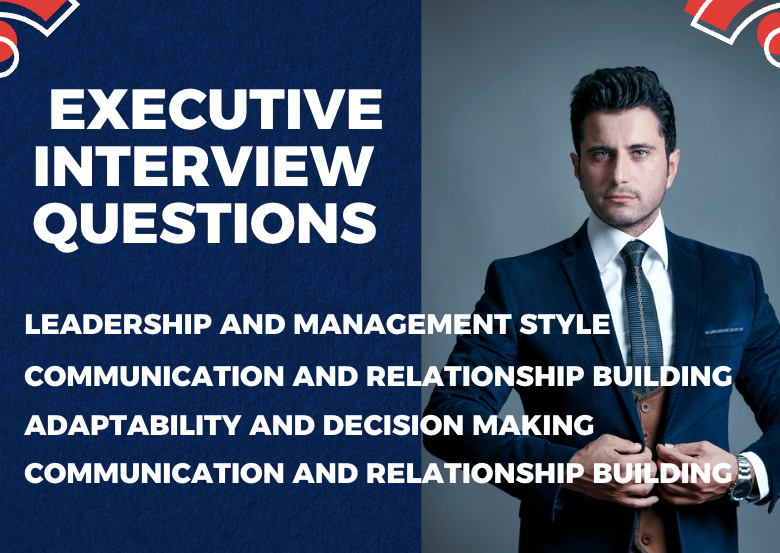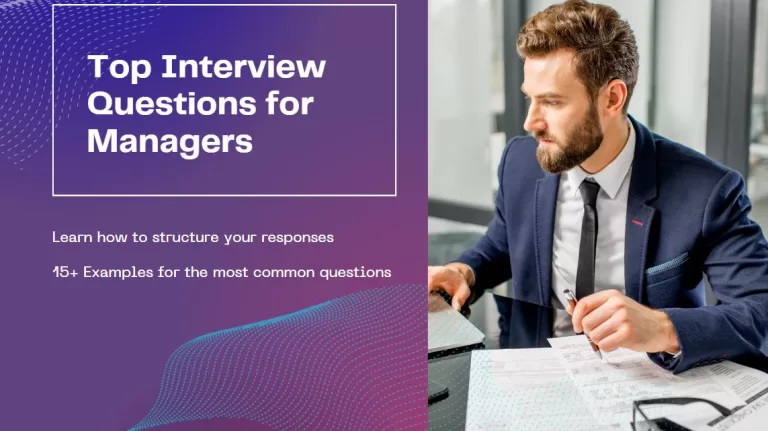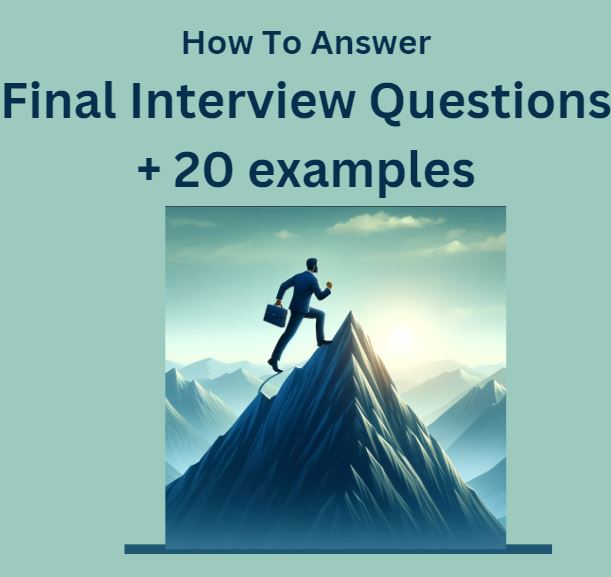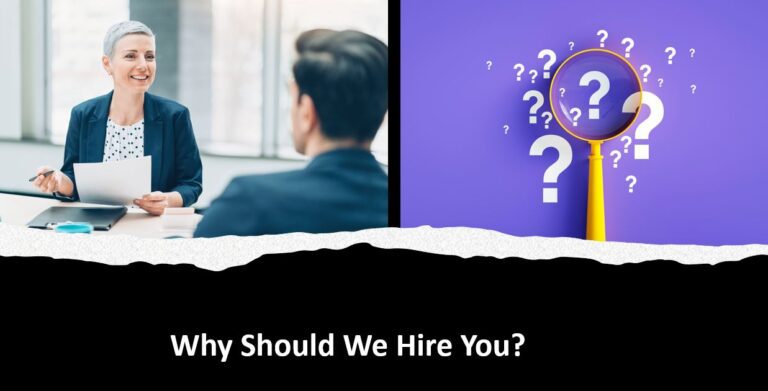Excel Executive Interview Questions | with 40+ Examples
About the author: Ilam’s career in Technology and Financial Services spans more than two decades, characterized by leadership roles and vast international experience. He has managed large global teams, worked across five countries, and engaged with colleagues from over 100 nationalities. Through this blog covering executive interview questions, Ilam shares his diverse experiences and insights, aiming to contribute to and enrich the community.

Understanding Executive Interview Questions
Stepping into an executive interview is more than just a career step; it’s a chance to show you are a leader who can shape the future of a company. This is where you move beyond the resume or standard job description, revealing how your vision and leadership can drive success as executive candidates. In this guide, we dive into the core of what makes an executive interview process unique.
You’ll discover a range of thoughtfully selected interview questions that cut to the heart of leadership (in this context – executive position). These aren’t just questions from the hiring manager; they’re a window into understanding what it truly takes to be a leader in today’s fast-paced business world. Here, we share insights from top industry professionals and essential tips to help you articulate your leadership narrative effectively.
Here are some helpful job interview related blogs
- Tackling the final interview round
- How to answer ‘tell me about yourself’
- What are your career aspirations
- Why do you want this job
- Why should we hire you
- Why are you leaving your job
- What are you passionate about
- Strengths and Weaknesses In Interview
- Interview questions for managers
- What is your management style
- Interview questions for freshers
- Tips to succeed in a job interview
- Types of interview questions
- Interview questions to ask candidates
- Behavioural interview questions
- Walk me through your resume
- What makes you unique
- What are your goals
- How do you handle stress and pressure
- Are you a team player
- How did you hear about this position
- Where do you see yourself in five years
- How do you handle stakeholders
Types of Executive Interview Questions
Leadership and Management Style
This category focuses on understanding how a candidate approaches leadership and team management. These questions aim to reveal the person’s management style, their ability to drive team performance towards company’s success, and how they handle the complexities of leadership roles.
This section will explore how candidates have led teams in the past, their strategies for motivating employees, and their approach to maintaining a good work-life balance within their teams.
Innovation and Problem-Solving
The emphasis is on a candidate’s ability to think creatively and solve problems effectively. These questions assess the candidate’s strategic insight, how they approach new challenges, and their methods for fostering innovation within an organization.
It also examines their past experiences in dealing with difficult or unmotivated staff (or when employee’s job performance dropped), and how they have used innovative solutions to overcome such challenges.
Communication and Relationship Building
Here, the focus shifts to how well a candidate communicates and builds relationships with co-workers, other executives, and stakeholders. This includes understanding their communication style, effectiveness in conflict resolution, and how they ensure that their team remains aligned with the company’s goals and culture.
Adaptability and Decision Making
These questions are designed to test a candidate’s ability to adapt to new situations and their decision-making process. It involves understanding how they have handled changes in their current job or previous roles, their methods for managing people through transitions, and how they align their decision-making with the overall mission and success of the company.
Leadership and Management Style
In the ‘Leadership and Management Style’ section of an executive interview, candidates can expect questions that focus on their approach to leadership, team management, and how they foster a positive and productive work environment. Here are several questions that candidates might encounter, along with sample responses for a couple of them:
- How do you define your management style and how has it evolved over your career?
- Can you give an example of a significant challenge you faced as a leader and how you resolved it?
- How do you motivate a team during challenging times?
- Describe a time when you had to make a tough decision that wasn’t popular with your team. How did you handle it?
- What strategies do you use to maintain a good work-life balance for yourself and your team?
- Can you share an experience where you had to manage a diverse team? How did you ensure inclusivity?
- How do you measure and evaluate the performance of your team?
- Describe how you have developed leadership skills in a member of your team.
- What approach do you take to handle conflict within your team?
- How do you align your team’s goals with the overall goals of the company?
Sample Responses:
- Question 4: “Describe a time when you had to make a tough decision that wasn’t popular with your team. How did you handle it?”
- Sample Response: “In my previous role, I had to implement a new policy that reduced certain benefits due to budget constraints. I knew this wouldn’t be well-received. I organized a team meeting to explain the situation transparently, detailing why the decision was necessary and how it would ultimately benefit the company’s stability. I also listened to the team’s concerns and took their feedback seriously, which helped in maintaining trust and morale despite the unpopular decision.”
- Question 7: “How do you measure and evaluate the performance of your team?”
- Sample Response: “I believe in a holistic approach to performance evaluation. At my last job, I implemented a system that combined quantitative metrics, such as project completion rates and sales figures, with qualitative factors like teamwork and creativity. I also conducted regular one-on-ones to provide feedback and understand each team member’s perspective. This approach not only helped in identifying areas for improvement but also in recognizing and celebrating achievements, which significantly boosted overall team performance and morale.”
These questions and responses are designed to provide insight into a candidate’s leadership approach, problem-solving skills, and ability to navigate the complexities of managing teams effectively in line with the company’s goals.
Innovation and Problem-Solving
In the ‘Innovation and Problem-Solving’ section of an executive interview, candidates are typically questioned about their ability to think creatively, address complex challenges, and implement effective solutions. These questions aim to gauge a candidate’s strategic insight, innovative thinking, and problem-solving skills. Here are several potential questions in this area, along with examples of how to answer a couple of them:
- Can you describe a situation where you implemented a new strategy or idea that significantly benefited your previous company?
- How do you encourage innovative thinking within your team?
- Describe a complex problem you faced in your last job and how you solved it.
- Can you give an example of a time when you had to think outside the box to meet a goal?
- How do you stay updated with the latest industry trends and incorporate them into your strategic planning?
- Describe a time when you had to make a decision without all the information you needed. How did you proceed?
- How have you handled a situation where your team was resistant to a new idea or change?
- Can you share an experience where you had to pivot your strategy due to changing market conditions?
- What approach do you take when solving problems that have no clear solution?
- How do you balance the need for innovation with the practicalities and limitations of your current role?
Sample Responses:
- Question 1: “Can you describe a situation where you implemented a new strategy or idea that significantly benefited your previous company?”
- Sample Response: “In my last role, I noticed our client engagement process was outdated, which impacted our sales. I proposed and led the implementation of a digital transformation strategy, introducing CRM software that streamlined our client interactions. This change not only improved our client engagement but also increased our sales by 20% within the first year.”
- Question 8: “Can you share an experience where you had to pivot your strategy due to changing market conditions?”
- Sample Response: “Recently, due to a shift in market demand, I realized our product was becoming less relevant. I led a rapid reevaluation of our strategy and pivoted towards a more service-oriented model. This involved reallocating resources, retraining staff, and restructuring our marketing approach. The pivot was challenging but ultimately led to a 25% increase in revenue and opened up new market opportunities.”
These questions and responses are crafted to illuminate a candidate’s ability to drive innovation, adapt to change, and overcome challenges in ways that align with and benefit the company’s objectives and growth.
Communication and Relationship Building
In the ‘Communication and Relationship Building’ segment of an executive interview, candidates are expected to demonstrate their proficiency in interpersonal skills, effective communication, and their ability to nurture positive relationships within the organization.
These questions delve into a candidate’s approach to interacting with team members, other executives, and stakeholders. Here are some questions that may be posed, along with examples of how to answer two of them:
- How do you ensure effective communication within your team?
- Can you give an example of how you resolved a conflict among team members or departments?
- Describe your approach to building relationships with new employees or team members.
- How do you manage communication with stakeholders during a crisis or major change in the company?
- Can you discuss a time when your communication style helped to advance a project or resolve an issue?
- How do you ensure that your team is aligned with the company’s mission and values?
- Describe a situation where you had to use your negotiation skills to influence a decision.
- How do you approach giving and receiving feedback within your team?
- Can you share a strategy you have used to improve team collaboration?
- How do you build trust and rapport with colleagues in other departments or external partners?
Sample Responses:
- Question 2: “Can you give an example of how you resolved a conflict among team members or departments?”
- Sample Response: “In my previous role, there was a conflict between the sales and marketing teams over lead generation strategies. I organized a joint meeting to facilitate open dialogue. By encouraging each team to present their perspectives and concerns, we identified the root of the conflict and collaboratively developed a blended strategy that leveraged the strengths of both teams. This not only resolved the conflict but also improved our overall lead generation process.”
- Question 4: “How do you manage communication with stakeholders during a crisis or major change in the company?”
- Sample Response: “During a major restructuring in my last role, I prioritized transparent and frequent communication with all stakeholders. I provided regular updates on the changes, the reasons behind them, and how they would benefit the company in the long term. This approach helped in managing expectations, reducing uncertainty, and maintaining trust during a challenging period.”
In these responses, the focus is on demonstrating the candidate’s ability to use effective communication to build strong relationships, resolve conflicts, and align team efforts with the company’s broader objectives.
Adaptability and Decision Making
In the ‘Adaptability and Decision Making’ section of an executive interview, the focus is on a candidate’s ability to handle change, make informed decisions under pressure, and guide the company through unforeseen challenges. These questions test a candidate’s agility in decision-making, their approach to risk assessment, and their capability to adapt strategies in response to the dynamic business environment. Below are some potential questions in this area, with examples of how to answer two of them:
- Describe a time when you had to adapt your leadership style to a new situation or challenge.
- How do you approach making high-stakes decisions with limited information?
- Can you give an example of a time when you had to change a business strategy in response to external market changes?
- Describe how you handle uncertainty and ambiguity in the workplace.
- How do you assess risks when making important business decisions?
- Can you discuss a time when you had to quickly pivot a project or strategy due to unforeseen circumstances?
- What strategies do you employ to ensure timely decision-making within your team?
- How do you balance long-term goals with short-term business needs?
- Describe a situation where you had to lead your team through a significant organizational change.
- How do you keep your team focused and productive during periods of uncertainty or change?
Sample Responses:
- Question 3: “Can you give an example of a time when you had to change a business strategy in response to external market changes?”
- Sample Response: “In my previous role, a sudden shift in consumer behavior due to technological advancements required us to rethink our product strategy. I led a cross-functional team to rapidly develop a new digital offering, aligning our strategy with these new market demands. This involved not only technological development but also a change in marketing and customer service approaches. The pivot was challenging but necessary, and it resulted in a 30% increase in customer engagement and opened up a new revenue stream for the company.”
- Question 9: “Describe a situation where you had to lead your team through a significant organizational change.”
- Sample Response: “During a merger in my last company, I had to lead my team through significant changes in structure and process. I focused on clear, empathetic communication and actively sought their input on how to integrate smoothly with the new organization. By maintaining open lines of communication and being responsive to their concerns, I was able to successfully navigate the team through this transition with minimal disruption and maintained team morale.”
Some additional questions – food for thought
- “What strategies have you implemented in the past to enhance company productivity?”
- This question aims to understand the candidate’s ability to identify and implement efficiency improvements.
- “Describe a time when you had to lead your management team through a major organizational change. What approach did you take?”
- This focuses on leadership and change management skills.
- “Share an example of how you successfully drove company revenue growth in a challenging market.”
- This question seeks insights into the candidate’s strategic and financial acumen.
- “Reflecting on your career, what has been your approach to ensuring a balanced and ethical decision-making process?”
- Ethical leadership and balanced decision-making are crucial in executive roles.
- “How do you ensure that your strategic goals align with the evolving needs of the business?”
- This explores strategic alignment and adaptability.
- “Can you discuss a time when you had to negotiate a significant deal or partnership? What was your strategy and the outcome?”
- Negotiation skills are vital for executives, especially in forming partnerships or closing deals.
- “How do you approach the challenge of retaining top talent while also managing the overall personnel budget?”
- This question delves into talent management and budgeting skills.
- “What has been your most innovative approach to market analysis and how did it benefit your previous company?”
- Innovative thinking in market analysis can reveal a lot about a candidate’s strategic insight.
- “Describe how you have used data and analytics to drive business decisions.”
- Data-driven decision-making is increasingly important in executive roles.
- “How do you approach corporate social responsibility, and how have you integrated it into business practices?”
- This question assesses the candidate’s approach to sustainability and ethical business practices, which are crucial in today’s business environment.
Here’s some helpful career/leadership related blogs
- Do you need an Career coach / Interview coach?
- Careers– Agile Coach, RTE, Product Owner, Scrum Master, QA Manager
- Career development plan
- Career growth
- Project Management
- Managing Managers
- IT Career switch
- Software Engineering career path
- Agility, Agile Testing
- Remote leadership / Leadership traits / Agile leadership
Other Productivity / Tools posts that may interest you





